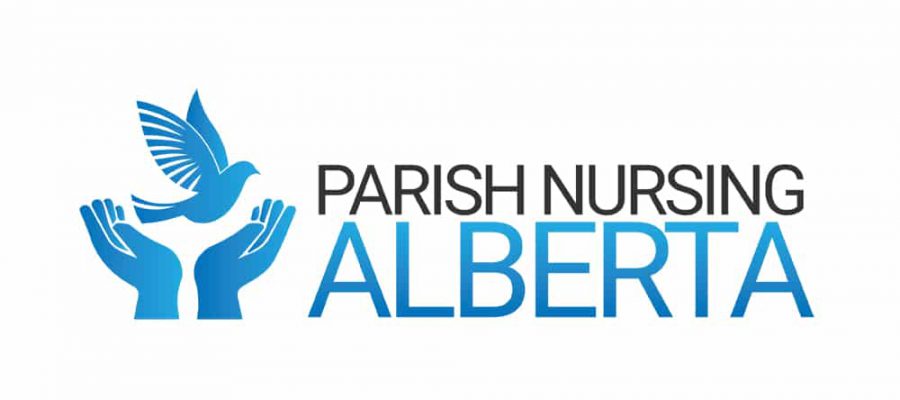Originally written by Liz Nanninga RN and Marlene Campbell RN
While pursing my certificate at Concordia Lutheran College in 2010, I realized that I didn’t know what a parish nurses does.
I also realized few, if any, people at my workplace and in the faith community really knew what a parish nurse does either.
The Canadian Association for Parish Nurse Ministry (CAPNM)’s definition of a parish nurse is: “a registered nurse with specialized knowledge called to ministry and affirmed by a faith community to promote health, healing and wholeness.”
That specialized knowledge arises out of a nursing conceptual model of biblical shalom-wholeness as espoused by Dr. Lynda W. Miller in her book Faith and Health: a Framework for Christian Nuses1. Parish nurses seek to help clients in their faith community integrate their faith and healing during times of transition – birth and death, disease, illness and surgery.
Parish nursing operates within the belief that faith and spirituality, in its various forms and rituals, promote healing. At the core of whatever he or she does, the parish nurse is distinguished from other kinds of nursing practice by their focus on spiritual care.
That care is not an add-on; it is vital. The parish nurse asks “How is this health issue affecting my client’s spiritual life, or how is their spiritual life affecting the way they handle their health issues or concerns?” Once the role of the parish nurse is determined by the faith community or organization for which they work, their scope of practice covers a vast range of scenarios from health educator, counsellor, and advocate, to facilitating support groups and referring to community resources.
The parish nurse is ‘present’ with the person going through a health issue or transition in life. Active listening, compassionate presence and prayer are the daily tools of the parish nurse. The parish nurse takes the time to connect, to understand the difficult decisions being made, and to help parishioners walk through the process, from beginning to end.
Focussing on the emotional, mental, physical, spiritual and social needs of clients (whole-person health) often translates into a better understanding for the client of their situation and a higher level of self-care. For example, on parishioner struggled with the complexities of organ donation following the death of his young wife. In addition to providing a listening ear while he expressed his deep loss and grief, the parish nurse referred this client to the patient relations department where he voiced valid frustrations. Follow-up visits continued as the client explored how his faith in God carried him through hard questions and not-so-simple answers.
Another client, house-bound with multiple chronic illnesses, asked for advice on medication changes and upcoming medical appointments. She expressed deep disappointment in her ability to attend church services, so as a substitute the parish nurses facilitated time in the weekly visit for Bible reading and prayer. This spiritual care activity empowered the client to feel like a choice-maker in dealing with her physical, mental and spiritual health.
In working with older adults and their families, the parish nurse often accompanies to appointments, corrects misunderstandings, answers questions regarding care, and addresses fears so that anxieties can be laid to rest. Parish nurses combat the loneliness many people feel as they go through their situation by assisting clients and families in their own environment, to understand the process and what part they can play in it to help. Ultimately, clients feel that their issues are real, they have someone to talk to when they need, that in an emergency they have someone to call on, and that someone cares.
Parish nursing in Alberta started in 1996. When 39 RNs from five Canadian provinces and territories took the first course offered at the University of Alberta faculty of nursing. Approximately 100 registered nurses completed courses at the U of A from 1996-2001. Concordia University College also offered courses by distance learning.
CARNA gave the AAPNM, a provincial chapter of the Canadian Association, Specialty Practice Group status in 2012. Currently, a core group of eight to 10 nurses interested in parish nursing meets in Edmonton three to four times yearly to share information and for mutual support.
Parish nurses are committed to set standards of practice and core competencies recently revised in 2015. More information about parish nursing can be found on the Alberta and Canadian websites www.aapnm.ca and www.capnm.ca
For purposes of this article, the authors recognise the use of “faith” to refer to the Christian faith as practiced by colleagues and members of AAPNM/CAPNM.
- Miller, L.W. (2004) Faith and Health: A Framework for Christian Nurses Victoria B.C. Trafford Publishing.
Featured in Alberta RN – Winter 2016 Volume 71 No 4 pp.18-19


Great article, Liz and Marlene!